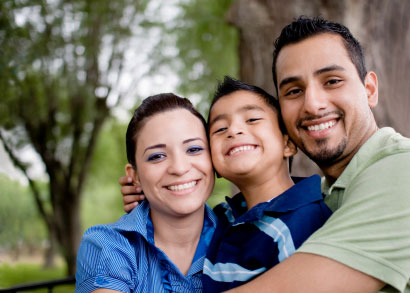Planning with Discretionary Family Trusts
Provided For Information Purposes Only - Bayside Associates Recommends Getting Legal Advise on All Family Trust Matters
 When owners of family business corporations seek to transition their businesses to their children, they often do so through what are known as estate freezes. In such transactions, the parents exchange their common shares for fixed value shares, typically preference shares, with a redemption amount equal to the value of the business (including goodwill). When owners of family business corporations seek to transition their businesses to their children, they often do so through what are known as estate freezes. In such transactions, the parents exchange their common shares for fixed value shares, typically preference shares, with a redemption amount equal to the value of the business (including goodwill).
New common shares, to which future value increases accrue, are issued to the heir(s) apparent. The parents must determine how many common shares - and therefore the portion of the future growth of the business - are to be received by each of their adult children.
This structure can be illustrated as follows:
Though there are benefits to estate freezes, such a structure may not provide the family with sufficient flexibility to address changing circumstances.
A common alternative is the discretionary family trust. With discretionary family trusts, the parents still exchange their common shares for fixed value freeze shares, but the new common shares are issued to a family trust rather than to the children. The beneficiaries of the trust often include the parents, the children (and their spouses), and any grandchildren. The trust is governed by trustees who generally include the parents and an arm's-length party.
This structure can be illustrated as follows:
Discretionary family trusts are an exceptionally flexible vehicle providing the following benefits:
Future business-asset wealth can be transferred to the next generation while maintaining voting and operational control of the business. It is generally recommend that individuals undertaking estate freezes in favor of their families retain voting control of the company at least until they have received the value of their freeze shares.
 Properly structured arrangements can be reversed (known as an "estate freeze thaw") where parental circumstances (financial requirements, death or disability of one or more heir(s) parent) or beliefs change. Properly structured arrangements can be reversed (known as an "estate freeze thaw") where parental circumstances (financial requirements, death or disability of one or more heir(s) parent) or beliefs change.
The trust can provide protection from beneficiaries who may attempt to exert claims or entitlements to the income or assets of the trust. Trustees have sole discretion as to how trust income and capital is allocated among the beneficiaries. In some circumstances, protection of family assets in the event of a marital breakdown of children-beneficiaries can be achieved (though legal advice is recommended in such cases).
Taxes (on any post-freeze value growth) otherwise due on the death of the parent(s) can be deferred to the later date of an arm's-length sale or the death of the next generation. In Ontario, for example, at current personal tax rates, approximately $230,000 can be deferred for every $1 million increase in value.
The trust can provide for multiplying the capital gains exemptions by allowing multiple individual family members to realize the exemption in respect of capital gains on the sale of shares of qualified small business corporations (QSBCs), certain farming or fishing assets, farming or fishing partnerships, and farming or fishing corporations. Although trusts may not claim the capital gains exemption, trustees can allocate and distribute such gains to beneficiaries. The recipient beneficiary, not the trust, is taxed as if that particular beneficiary had realized the capital gain directly. (This is also the case with dividends from Canadian corporations where the trust allocates and pays such amounts to beneficiaries.) Individuals generally can claim a capital gains exemption in respect of gains realized from the sale of QSBC shares (and certain farming/fishing assets, partnerships and corporations). In general terms, a QSBC is a corporation in which more than 90% of the fair market value of all its operating assets (Active  Assets) and those of its subsidiaries are used primarily in Canada, principally in carrying on an active business. Redundant assets such as portfolio investments, cash surrender value of life insurance policies, excessive cash deposits, shareholder loans receivable and certain intercompany loans are not considered Active Assets. There is a further requirement that at all times in the two years before a disposition, more than 50% of the QSBC's total assets must be used in carrying on an active business in Canada. If these and other criteria are satisfied, the individual beneficiaries, subject to their personal tax circumstances, would be eligible to claim a capital gains exemption. Assets) and those of its subsidiaries are used primarily in Canada, principally in carrying on an active business. Redundant assets such as portfolio investments, cash surrender value of life insurance policies, excessive cash deposits, shareholder loans receivable and certain intercompany loans are not considered Active Assets. There is a further requirement that at all times in the two years before a disposition, more than 50% of the QSBC's total assets must be used in carrying on an active business in Canada. If these and other criteria are satisfied, the individual beneficiaries, subject to their personal tax circumstances, would be eligible to claim a capital gains exemption.
Discretionary family trusts allow for income splitting with lower-income individual family members over the age of 17. In most family planning circumstances, the amounts allocated and paid to beneficiaries by the trust would be dividends from Canadian corporations. Where an individual beneficiary has no other income, over $30,000 of such dividends can be allocated to that beneficiary without incurring any significant personal income tax liability. This can be an effective tax planning strategy in funding children's education.
There are three caveats to keep in mind when using discretionary family trusts:
Where an estate freeze is implemented and minor children or the spouse of the persons executing the freeze are beneficiaries of a trust, corporate attribution can apply. This concept was discussed in the spring 2009 edition of Tax Alert. Where these provisions apply, the parent(s) would be deemed to receive a dividend each year equal to a percentage (as set four times per year by the Canada Revenue Agency) of the fair market value of the shares received in the course of the freeze and to the extent they remain outstanding. The good news is that these punitive rules do not apply if the corporation subject to the estate freeze is at all material times a QSBC. Therefore, when trusts are used in family business planning scenarios, a mechanism should be incorporated to maintain the freeze corporation as a QSBC.
 The trust will exist until all the assets are distributed to the beneficiaries and the trust is wound up. A discretionary family trust is deemed to dispose of its capital assets every 21 years on the anniversary of the trust creation, at the fair market value of such assets at that time. This rule is intended to prevent an indefinite deferral of the recognition of accrued gains on capital and other specified types of property. Therefore, if the trust holds common shares of privately held companies, inherent gains would be triggered every 21 years. The good news is that the 21-year deemed disposition rule can be avoided as the Act generally allows the trustees to make a taxdeferred distribution of trust capital property to Canadian resident beneficiaries in satisfaction of all or part of their capital interest in the trust. The result, absent an arm's-length sale, is to defer the tax on gains in respect of assets held in the trust to the date that is the earliest of the death of the recipient beneficiary, or an arm's-length sale. Although this deemed disposition rule, in essence, places a 21-year limit on the timeframe for the benefits noted above, the period generally is more than sufficient to execute the objectives and obtain the primary benefits of any income splitting and estate/succession planning in respect of Canadian private corporations and their shareholders. Even at the end of 21 years, and though assets may be distributed to the beneficiaries, it may be possible for the trustees to retain effective control of the trust assets as well as any future growth in value of the trust's assets beyond the 21-year anniversary date. The trust will exist until all the assets are distributed to the beneficiaries and the trust is wound up. A discretionary family trust is deemed to dispose of its capital assets every 21 years on the anniversary of the trust creation, at the fair market value of such assets at that time. This rule is intended to prevent an indefinite deferral of the recognition of accrued gains on capital and other specified types of property. Therefore, if the trust holds common shares of privately held companies, inherent gains would be triggered every 21 years. The good news is that the 21-year deemed disposition rule can be avoided as the Act generally allows the trustees to make a taxdeferred distribution of trust capital property to Canadian resident beneficiaries in satisfaction of all or part of their capital interest in the trust. The result, absent an arm's-length sale, is to defer the tax on gains in respect of assets held in the trust to the date that is the earliest of the death of the recipient beneficiary, or an arm's-length sale. Although this deemed disposition rule, in essence, places a 21-year limit on the timeframe for the benefits noted above, the period generally is more than sufficient to execute the objectives and obtain the primary benefits of any income splitting and estate/succession planning in respect of Canadian private corporations and their shareholders. Even at the end of 21 years, and though assets may be distributed to the beneficiaries, it may be possible for the trustees to retain effective control of the trust assets as well as any future growth in value of the trust's assets beyond the 21-year anniversary date.
There are a number of specific technical and administrative requirements and anti-avoidance provisions that must be satisfied to establish and operate a family trust successfully. Some of these issues will be discussed in future editions of Tax Alert.
|